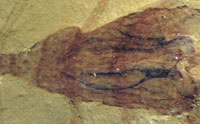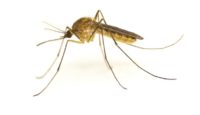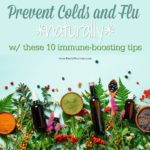By Dr. Mercola Readers of this newsletter know that plastic pollution is an urgent crisis. But, as if the 299 million tons of plastics the world produces a year were not enough, the situation is actually getting worse. China had imported 40 percent of America’s plastic waste, as well as other recyclables, for the last 30 years, but abruptly banned the imports in 2017.1 This has had dire consequences and the market for recyclables has all but collapsed, leaving cities that depended on exporting to China with no buyers. The same cities that used to earn a profit from selling [More]
By Lori Alton, staff writer (NaturalHealth365) Heart disease, the number one cause of mortality in the United States, is currently responsible for over 800,000 deaths a year. The primary risk factors for this potentially deadly condition are thought to include high blood pressure, lack of exercise, obesity, cigarette smoking and diabetes. But, with the results of a shocking study published in The Lancet, researchers are now pointing to another likely culprit – lead exposure. Natural health experts have long warned that lead is a dangerous neurotoxin – for which there is no safe level of exposure. The startling study …read [More]
By Christine M. Dionese, L.Ac, MSTOM (NaturalHealth365) Depending on how many years young you are, you may remember when vitamin D started gaining popularity in Western medicine for its bone-protecting qualities. But, in recent years, conventionally-trained healthcare providers are starting to realize the greater threat a lack of vitamin D can have on immune function and overall well-being. For example, Harvard T.H. Chan School of Public Health states that ‘vitamin D deficiency is a global concern.’ But, it’s not just Harvard, many researchers have reported that optimal vitamin D3 levels effectively assists in preventing premature death by any cause. …read [More]
By Michael Greger M.D. FACLM Understanding the metabolic and behavioral adaptations that slow weight loss. …read more Source: nutritionfacts.org
By Michael Greger M.D. FACLM How many fewer calories do you have to eat every day to lose one pound of body fat? …read more Source: nutritionfacts.org
10/07/19 “It’s mind-blowing what they are putting in vaccines and the public is told nothing about it. This is like something out of Dr. Frankenstein’s lab.” Admin The Italian vaccine research and advocacy organization Corvelva recently released new data regarding the use of aborted fetal cells in vaccines. The research reports the results produced from the MRC 5 cell line analysis, particularly the one contained in GlaxoSmithKline’s tetravalent measles-mumps-rubella-chickenpox (MMRV) vaccine. The Corvelva team summarized their findings as follows: 1- The fetal cell line was found to belong to a male fetus. 2- The cell line [More]
By Edsel Cook (Natural News) Need a cheap yet reliable …read more Source: Natural News
By Dr. Mercola The fact that there are serious issues in our food supply is no longer a secret. Evidence not only reveals toxicity levels in food are rising but also that conventional agriculture has become a leading cause of environmental pollution and destruction. Toxicity in food comes from several sources. Some toxins are accumulated during the growth phase, others are added during harvesting and processing, and yet others are introduced when the ingredients are manufactured into their final, processed food, form. By far, the greatest concerns are relegated to processed foods, but even whole foods, both plant and animal [More]
Last night, I ate a steak. Very good it was too. A plump, exquisitely marbled slab of sirloin, beautifully seasoned and cooked blushing pink. It had come from Martin Player, a proper Cardiff butcher, who takes his meat, as well as the animal’s welfare, very seriously indeed. Just like any other decent butcher. Grass-fed, fully traceable and properly hung, it was a paean to not just fine flavour, but first- class farming practice too. Sensible, sustainable agriculture, where the welfare of the animal is every bit as important as its impact upon the environment. Yet this magnificent piece of beef [More]
By Daisy Luther If you missed the previous challenges, you can catch up here: Day 1 Day 2 Day 3 Day 4 Day 5 Day 6 Day 7 Day 8 Day 9 Day … Read the rest The post National Preparedness Month Daily Challenge: Day 29 appeared first on The Organic Prepper. …read more Source: Organic Prepper
By Jessica Butler, staff writer (NaturalHealth365) Asthma in children has steadily been on the rise – since the 1980s with over 3 million kids suffering. This is alarming, especially when you consider that the third-ranking cause of hospitalization in kids under 15 is asthma. On a more practical level, it’s no better. For kids 5 to 17 years old, asthma happens to be one of the biggest reasons for missing school. And, the stress this (avoidable) condition places on the entire family is enormous – to say the least. And, even though – conventionally speaking – they claim that …read [More]
By none When it comes to sexually transmitted infections (STIs), herpes is one of the first conditions that come to mind, since it’s a very common disease1,2 that poses serious health risks if left unaddressed.3Herpes can be caused by two viruses: herpes simplex type 1 (HSV-1) or type 2 virus (HSV-2), and can be classified into two types: genital herpes, in which sores are seen on or around your genital area, or oral herpes, with sores typically visible on or around your mouth.4,5 How Many People Are Diagnosed With Herpes? In the U.S., herpes incidences are common. …read more Source: [More]
By Dr. Mercola In this interview, Jed Fahey, Sc.D., a nutritional biochemist, assistant professor at Johns Hopkins Medical School,1 and director of the Cullman Chemoprotection Center,2 reveals why cruciferous vegetables are such nutritional gems. Fahey has spent the past four decades of his life researching plant compounds and the medicinal benefits of vegetables. His extensive training includes plant physiology, human nutrition, phytochemistry and nutritional biochemistry. In the early ’90s, he began working with Paul Talalay, a renowned pharmacologist and cancer prevention scientist at Johns Hopkins. Talalay died in March 2019 at the age of 95.3 “Prevention was a fairly radical [More]
By Dr. Mercola Hippocrates once said that “all disease begins in the gut,”1 and the more we learn, the more accurate that statement proves to be. As noted in a 2018 paper:2 “While often-quoted figures suggest that the microbes that live in and on the human body outnumber human cells by 10:1, a more recent estimate suggests that we are essentially one part human to one part microbe in terms of cell number.3 These commensal microorganisms have a vital role in human health. They break down otherwise indigestible dietary fibres and other components of food, produce …read more Source: mercola [More]
By Thomas E. Levy, MD, JD (NaturalHealth365) Fatigue and depression are at epidemic levels in modern society. Today, I ask you, could gluten allergies (toxicity) be causing so many of today’s health problems? While I make great efforts to keep up on the current medical literature, my efforts consistently fall short of the mark. It seems that every few months I make my own personal “discovery” of significant medical information that has escaped me while having long been familiar to many of my fellow docs. In particular, I would like to inform all health-seekers about two very important books. And [More]
By Dr. Mercola Although the exact origin of garlic (Allium sativum) is not known, it’s believed to be a native of middle Asia, likely from West China.1 As a medical remedy it’s been used since 2700 B.C. to treat numerous afflictions, from depression to rheumatism to coughs and more, and the journey it’s taken has touched nearly every major civilization. For example, the Egyptians fed it to slaves to give them strength and endurance; Hippocrates used it as for breathing problems and tumors;2 Pliny the Elder liked it for joint diseases and seizures; Easterners used it to treat diarrhea — [More]
By Daisy Luther Can you believe today is the last day of the challenge? If you’ve been following along you have tested and prepared yourself 29 times so far this month! And if … Read the rest The post National Preparedness Month Daily Challenge: Day 30 appeared first on The Organic Prepper. …read more Source: Organic Prepper
By Jenny Jayne By Jenny Jayne Many people still have to venture out on the roads, even if there’s a flash flood watch. We have obligations like school and work that keep us … Read the rest The post What to Do (and NOT Do) If You’re Driving During a Flash Flood appeared first on The Organic Prepper. …read more Source: Organic Prepper
The evidence is too weak to justify telling individuals to eat less beef and pork, according to new research. The findings “erode public trust,” critics said. Public health officials for years have urged Americans to limit consumption of red meat and processed meats because of concerns that these foods are linked to heart disease, cancer and other ills. But on Monday, in a remarkable turnabout, an international collaboration of researchers produced a series of analyses concluding that the advice, a bedrock of almost all dietary guidelines, is not backed by good scientific evidence. …read more Source: Sott health news feed [More]
By Admin by GMWatch.org Object now! Oxitec is proposing to release its genetically modified (GM) OX5034 Aedes aegypti mosquitoes in the US states of Florida and Texas. The EPA has opened a public comment period. Oxitec’s application says, “Female offspring of the OX5034 mosquitoes in the environment are expected to die before they mature into adults and therefore exposure to biting female mosquitoes is not anticipated.” However, experience with another strain of Oxitec mosquito, OX513A, shows that Oxitec’s claims that its GM mosquitoes are self-limiting are <a target=_blank href="https://gmwatch.org/en/news/latest-news/19144" …read more Source: Health Impact News
By Sara Tipton With the changing season, our immune systems will have to work harder to fight off illnesses. This is partly due to our bodies getting less sunlight and vitamins, as well as several other factors. In the winter, the cold temperatures can suppress the immune system making it more difficult to fight off a cold or the flu. Add that to the fact that the sun’s low angle makes for less vitamin D being absorbed by the body, and that’s often why people get sicker more often this time of year. Make sure you know the signs of [More]
By Jessica Butler, staff writer (NaturalHealth365) In the past several years, breastfeeding has earned the national spotlight (again) as the preferred method of feeding babies. Scientists and doctors alike have realized that their ideas of competing with human milk – using synthetic substitutes or formulas – were not going to be as successful. Although commercial baby formulas make a feeble attempt at replicating many of the nutrients found within breast milk, researchers continually find more benefits to breast milk in its natural form that stretch beyond nutrient intake. Pregnant women need to know the truth about breastfeeding ”Mother’s milk, time-tested [More]
By Joy Jensen, staff writer (NaturalHealth365) Medicinal mushrooms are considered an important part of traditional diets around the world, adding a subtle flavor to a variety of dishes. However, more recently, scientists have uncovered the many healing aspects such as, an excellent source of antioxidants, prebiotics plus a wide variety of antimicrobial, anti-inflammatory and immunomodulating agents. Why does this matter? Well, with cancer being one of the leading causes of death on a global scale, current anti-cancer drugs do a poor job (at best) in helping the body to avoid dis-ease. This is exactly why more and more research is [More]
By Dr. Mercola In the U.S., most poultry that comes from concentrated animal feeding operations (CAFOs) is washed in a strong chlorine or other antimicrobial solution as a way to kill pathogens.1 The chlorine rinses or sprays are intended to act as antimicrobials that reduce Salmonella and other common causes of foodborne illness. The EU, however, does not use chlorine washes on its chicken and wants no part of America’s “chlorinated chicken” either — it has banned U.S. chicken imports since 1997 due to the practice of chlorine washing. The concern isn’t necessarily due to the chlorine wash itself, but [More]
By Daisy Luther By Daisy Luther What would it mean to you if you had an unexpected trip to the emergency room? If your car required an expensive repair? What if your income … Read the rest The post 60% of Americans Do NOT Have an Emergency Fund. They’re One Missed Paycheck From Disaster appeared first on The Organic Prepper. …read more Source: Organic Prepper
By Joy Jensen, staff writer (NaturalHealth365) Just about everyone knows that sugary beverages not only destroy weight loss plans, but also trigger negative health effects. Unfortunately, as a replacement for sugar-laced beverages, too many people still turn to soda with artificial sweeteners – with the hope of cutting out “empty calories.” However, there’s a growing body of scientific evidence that suggests it’s a really bad move. Excessive sugar consumption continues to be a problem in the Western diet, contributing to health conditions like diabetes, obesity plus much more. However, while diet soda and other diet drinks are popular, one new [More]
By Elizabeth Waddington A garden should be a private, secure and peaceful place. In this article, we will examine how you can use fast growing shrubs and bushes for creating privacy. Successful garden design takes into account how an outside space operates as an ecosystem but also how well it works for human inhabitants. Creating privacy can be an important consideration, especially in more built-up urban environments. High walls and high fences, however, are not the only option. Choosing the right planting plan is also important. Sensible, sustainable garden design takes the future into account as well as the present. [More]



































